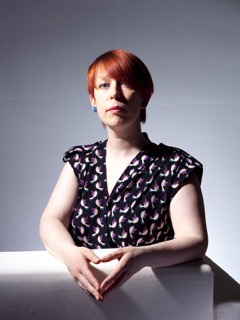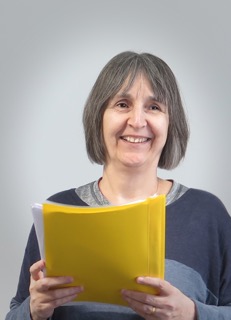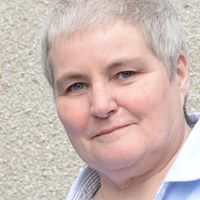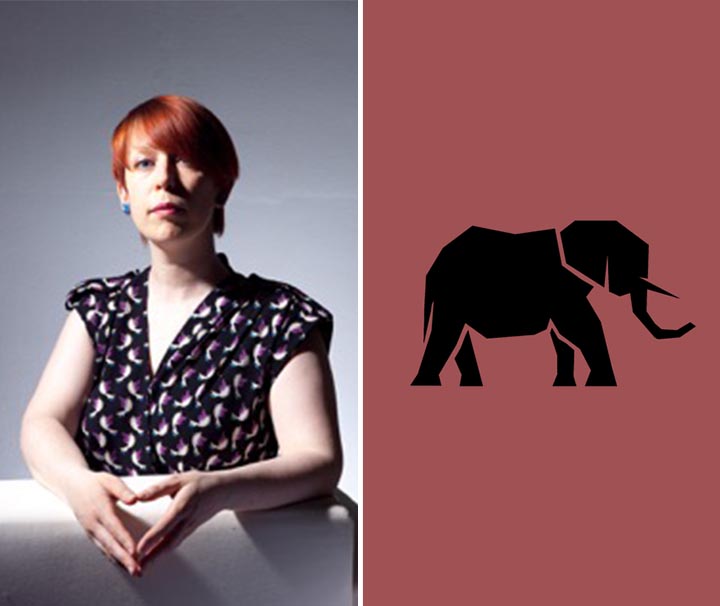Poetry’s role as a celebrant, marking life’s cornerstone moments and memorialising the noteworthy is traditionally renowned and established. But throughout this week, we’ll both share, read and write poems that also look at unlikely and untraditional subjects for celebration.
Our poetry prompts and writing activities will seek to shine a light on the unsung and overlooked, and will encourage you to write poems of working lives, everyday heroes and heroines, and the miracles of the commonplace which don’t always get their fair share of praise in poetry.
Prepare to exalt and pay tribute, raise a glass or give the credit where it’s due, and encounter some poetic forms, unusual approaches and interesting techniques along the way.
 |
Tutor: Jane Commane – Poet/Editor/Writer
Jane Commane was born in Coventry and lives and works in Warwickshire. Her first full-length collection, Assembly Lines, was published by Bloodaxe in 2018. Her poetry has featured in anthologies including The Best British Poetry 2011 (Salt Publishing) and Lung Jazz: Young British Poets for Oxfam (Cinnamon) and in magazines including Anon, And Other Poems, Bare Fiction, Iota, Tears in the Fence and The Morning Star. She has been a poet in residence at the Brontë Parsonage in Haworth, and has led many writing workshops in a variety of locations, including in museums, castles, city centres, orchards and along riverbanks. In 2016, she was chosen to join Writing West Midlands’ Room 204 writer development programme. A graduate of the Warwick Writing Programme, for a decade she also worked in museums and archives. Jane is editor at Nine Arches Press, co-editor of Under the Radar magazine, co-organiser of the Leicester Shindig poetry series, and is co-author (with Jo Bell) of How to Be a Poet, a creative writing handbook and blog series. In 2017 she was awarded a Jerwood Compton Poetry Fellowship. Photo: Paul Lapsley Photography |
||||||||||
 |
Guests, Wednesday evening: Elephant’s Footprint – Chaucer Cameron and Helen Dewbery
Chaucer and Helen work together as Elephant’s Footprint and their personal film poetry work and projects can be seen at http://www.elephantsfootprint.com |
||||||||||
 |
Chaucer Cameron is a poet based in Wiltshire. Chaucer has co-edited three collections of poetry and image and co-edits the online poetry film journal Poetry Film Live. Chaucer’s monologues, have been performed at the Everyman Theatre Cheltenham and her poems and film poems have been screened in Film and Poetry Festivals and online journals including: Poetry Swindon Festival, Cheltenham Poetry Festival, Bristol Spring Poetry Festival, The Dymock Poets Conference, International Video Poetry Festival Athens, Sadho Poetry Film Festival, New Delhi, Festival Silenci, Lisbon, and Atticus Review. Her collaborative work includes facilitating film poetry collectives, film poetry curations and augmented poetry performances. Chaucer’s groundbreaking Wild Whispers International Film Poetry Project, which explores adaptation and collaboration through poetry film, was launched in 2018. | ||||||||||
 |
Helen Dewbery is Co-Director of Swindon Poetry Festival and co-edits the online poetry film journal Poetry Film Live. Helen’s work has been screened internationally in poetry and film festivals. Helen is an Associate member of the Royal Photographic Society. |
||||||||||
| PRICES | Fee includes all day and evening tutored workshop sessions, readings, accommodation and full board (not including alcohol).
Single – En-suite room £790 |
||||||||||
| TO BOOK | £150 deposit payable on booking by PayPal, bank transfer or cheque, to secure place, balance due six weeks before start of course. Please see Terms and Conditions. |
||||||||||
| INCLUDED |
|
||||||||||
| WHAT TO BRING |
|
||||||||||
| START TIME | Please arrive between 3:00pm and 5:00pm on Monday 18th November 2019. Tea and Cake 4.30pm Introductory Workshop 5.45 – 6.45pm |
||||||||||
| END TIME | After breakfast, 10:00am on Saturday 23rd November 2019. | ||||||||||
| LOCATION | The Garsdale Retreat, Clough View, Garsdale Head, Sedbergh, Cumbria LA10 5PW Nearest railway station: Garsdale, on the Leeds – Carlisle line. For directions, see Find Us section on the Contact page. |
Courses
The Garsdale Retreat provides an inspiring place to develop as a writer. Our courses offer opportunities for new, emerging and experienced writers. The tutors, all professional writers, lead workshops and also give one-to-one tutorials to help the individual student. In the remote and beautiful setting of The Yorkshire Dales, The Garsdale Retreat gives a wonderful opportunity to escape from the daily stresses of life and to draw inspiration from fellow students, tutors and the landscape itself.
All courses start on Monday afternoon, arrival time 3.00 – 5.00pm. On this first day, tea and cake are at 4.30pm followed by an introductory/ice-breaking workshop 5.45 – 6.45pm. Dinner is at 7.00pm. All courses end after breakfast on Saturday (10.00am).
Course Structure
Although there will be slight variations, according to the type of course (see below), students can generally expect the following outline:
8.00 – 9.00am: Breakfast
9.30 – 11.00am: First workshop – Students explore particular aspects of the chosen genre and take part in writing exercises to further their understanding and expertise. All students have opportunities to share their work with the tutor and fellow writers in a safe, supportive and nurturing environment in which individual work is respected and confidence developed.
11.00 – 11.30am: Coffee break
11.30am – 1.00pm: Second workshop
After lunch, participants are free to do whatever they like, such as: relax, go for walks, enjoy The Dales, draw, paint, read or work on individual writing projects.
4.30pm: Tea and cake
5.00 – 6.00pm: Third workshop
7.00pm: Dinner
All students have one individual tutorial of 30 minutes with the tutor in the course of the week which usually takes place at a mutually agreed time, usually in the afternoon.
Each evening, at about 8.30pm, there is an after-dinner event. The precise nature of this varies according to the type of course but participants can typically expect a tutor reading on Tuesday followed by a reading from a guest writer on the Wednesday evening. There is an informal activity on Thursday such as a student ‘open-mic’ night or word/literary game. On Friday, there is a reading of work produced during the week.
Poetry Course Anthology
An integral part of poetry courses is the production of an anthology of writing produced in the week. It is, of course, accepted that the writing is essentially work-in-progress. However, the aim of the anthology is to reflect a flavour of the work accomplished on the course and to provide participants with an attractive record of their time at Garsdale. The Retreat stores copies of anthologies in the library, providing pleasure and inspiration for future students.
Tutored Retreats
These follow the same basic structure as above except there is only one workshop in the morning and, depending on the size of the group, participants will have between two and four tutorials per week.
Untutored Retreats
The only formal structure of the week is determined by meal-times (see above), allowing participants to concentrate totally on their own writing. After dinner, participants in conjunction with the course director sometimes organise evening read-rounds of their work /open mics/music /word games. However, participation in such events is entirely voluntary and people are free to continue with their writing in the evenings if they prefer.



